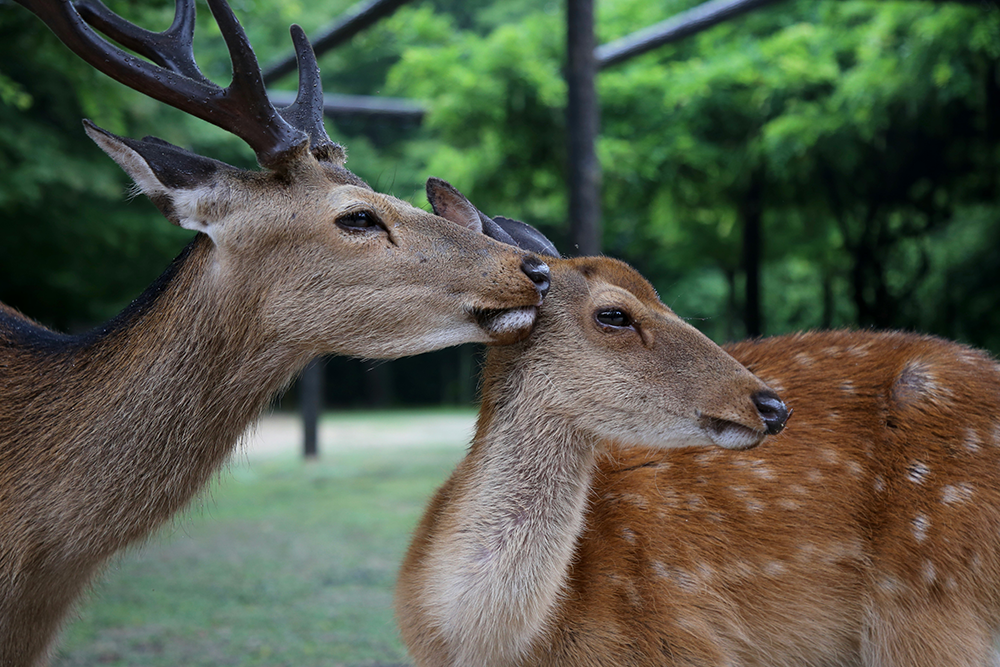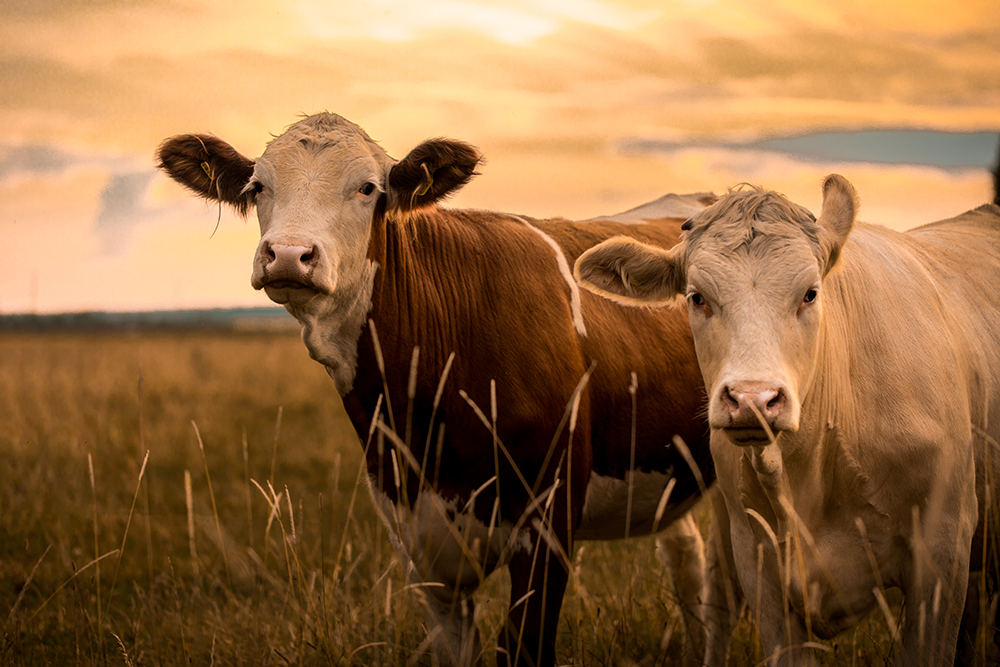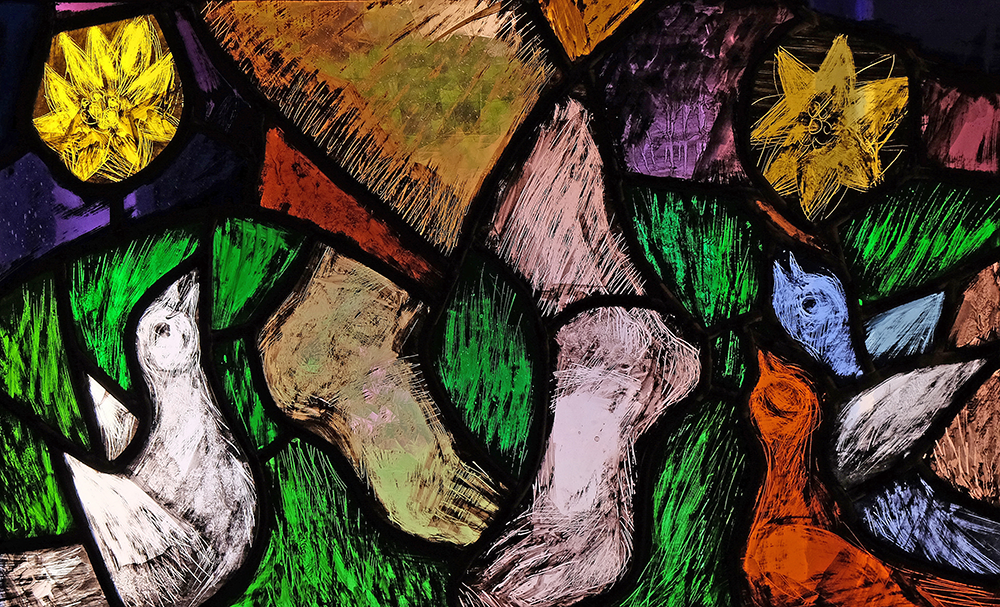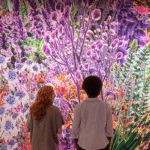St Francis of Assisi has long inspired Christians to see animals not as lesser beings, but as beloved fellow creatures—brothers and sisters under God. In this timely and thought-provoking article, Dr Daniela Rizzo, Associate Lecturer in Systematic Theology at Alphacrucis University College, Sydney, invites us to rediscover the radical implications of St Francis’ vision in the face of environmental crisis, mass extinction and theological neglect of non-human life.
St. Francis of Assisi saw all creatures, regardless of their species, as brothers and sisters under God. His teachings remind us that animals are not merely inhabitants of our world, but are also considered by God, a perspective that challenges us, particularly in light of our environmental crisis, to rethink our responsibilities and roles as custodians of the earth. I argue, that it may mobilise us to extend our mission beyond human realms that prioritises the flourishing and protection of all sentient beings.
Practical theologians are increasingly tasked with addressing not only traditional human-focused crises but also the ingrained habits that contribute to ecological degradation. This expanded perspective calls for urgent responses to immediate threats like the global climate crisis, while also emphasising proactive and anticipatory actions to safeguard the planet’s future. From this premise, conservation transcends its practical dimensions to assume a theological significance, casting environmental stewardship as an integral facet of a mission known as eco-mission.
Rooted in the ethos of eco-mission, a zoological focus amplifies the imperative to safeguard animal habitats, prevent species extinction, and foster biodiversity, thus championing the flourishing of non-human creatures. This approach aims to acknowledge the interdependence of all sentient creatures while underscoring humanity’s sacred responsibility to nurture the earth. By prioritising the welfare of animals and their ecosystems, zoological mission embodies a holistic approach to stewardship that extends beyond anthropocentric concerns. It prompts a reevaluation of existing missiological frameworks to embrace this expansive perspective and advocates for active involvement to safeguard sentient life on our planet.
However, the reality of extinction presents a theological problem. Anthropocentric perspectives prioritise the benefits nature provides to humans, often framed as ecosystem services or within planetary boundaries conducive to human flourishing. While this approach may inspire efforts to protect ecosystems, it can also lead to a bias towards human interests. From a theological standpoint, this perspective may be considered incomplete, as it fails to fully embrace the biblical depiction of God’s concern for animals, exemplified in God’s covenant with Noah and the animals (Genesis 9:9–10) and passages like Psalm 104:17–22, which highlight God’s care for all living creatures, irrespective of human involvement.

The biblical text portrays animals as capable of expressions like praise and lament, suggesting that they live in relationship with God and respond to divine love according to their nature. While lacking apparent reflective consciousness like humans, animals still bear witness to the Creator’s power, challenging the notion that divine relationship is exclusive to humans. This expanded understanding of spirituality challenges anthropocentric perspectives and highlights animals’ unique relationship with God as co-creatures enlivened by the life-giving Spirit.
In this context, an eco-mission perspective deepens Christian concern for animals and our shared environments, recognizing the interdependence of all creation in the pursuit of flourishing lives. A zoological focus within our theology is motivated by the importance of stewardship practices that extend beyond human-centric concerns to encompass the well-being of all creatures.
The scriptural expressions of creation as the fitting abode for creaturely existence is a fundamental feature of Abrahamic faiths, however, Christian theology has historically overlooked the significance of individual species’ lives and deaths. While Christian environmental ethics often addresses extinctions as indicative of larger issues such as industrialism, modernity, or colonialism, specific attention to nonhuman lives and deaths remains minimal within Christian discourse. Andrew Linzey echoes this sentiment and affirms that, “Christians entrusted with a ministry of reconciliation to the whole of creation need to be credible signs of the Gospel for which all creatures long.”
For Sigurd Bergmann, extinction (in the context of anthropogenic climatic change) can be regarded as human sin due to its connection to the broader human failing of fetishizing power. This mindset leads to the disenchantment of the sacredness inherent in earth and life, reducing them to mere instruments for dominance. From a Christian ecological perspective, recognising this distortion of power allows us to discern the Holy Spirit’s presence in the struggles of all living creatures, including those facing extinction. This understanding of sin goes beyond mere ethical wrongdoing; it encompasses a deeper alienation of creation from its source of life.
From an ecofeminist standpoint, sin manifests as unjust oppression of both women and nonhuman creatures, stemming from a denial of their interconnectedness with God. Ultimately, sin against one another and against nonhuman creation is fundamentally a sin against God. Understanding extinction as a consequence of unjust fragmentation and exploitation of creaturely life underscores the need to view our neighbours, both human and nonhuman, as equals rather than commodities.
The incarnate presence of Christ in the world signifies redemption and transformation, serving as the locus of God’s definitive self-disclosure and the apex from which God’s engagement with the created order is most fully realized. This pivotal moment embodies God’s relationship with humanity and the material realm, marking a divine entry into the deepest dimensions of spatial and temporal existence. Historical accounts of Jesus depict him as intimately attuned to the natural world, finding communion with God not solely in conventional settings like temples or households, but also amidst the open expanse of hillsides, gardens, and wilderness. His seamless interaction with both urban and natural environments, coupled with his frequent use of natural imagery and metaphors, underscores a kinship with the created order.

God’s mission is centered on the flourishing of creation. Salvation is not an end in itself but a means to restore creation to its original state of harmony. The church exists for the world’s sake, and humans are called to participate in communion with the rest of creation, celebrating the Creator’s work. This acknowledgment of the world as God’s cherished creation forms the basis for a revitalized Christian mission, inspiring an ecological ethos, praxis, and spirituality.
This perspective is inspired by Andrew Linzey’s advocacy for a mission that embraces all creatures. He challenges the notion of humans as the privileged species, arguing that being ‘chosen’ implies service rather than mastery. Our ‘calling,’ Linzey suggests, is to use our influence to benefit the weak, defenseless, and vulnerable, those unable to advocate for themselves. This service to all suffering creatures, treating them as equals worthy of love, fosters a more harmonious relationship with all of creation.
Building on Linzey’s perspective, I propose an expanded concept of mission to include all species. This ‘Zoological Mission’ urges us to follow Christ’s example by coexisting with and serving as representatives of the imago Christi among other creatures. In a world yearning for justice and peace, this mission becomes increasingly crucial. Living in harmony with the Holy Spirit, the ultimate origin and sustainer of life, involves advocating for life, justice, and solidarity, specifically for our non-human cohabitants.
The convergence of conservation, animal care and mission weaves current eco and animal theologies with tangible actions to preserve biodiversity and safeguard ecosystems. It stresses humanity’s role as custodians of the earth, responsible for nurturing its flourishing. This approach extends the traditional notion of mission beyond human realms, embracing a holistic, yet specific vision that prioritizes the flourishing and protection of sentient animals. As St. Francis of Assisi beautifully expressed, “Consider, O human, the wondrous dignity God has conferred upon you. He created and formed your body in the image of His Beloved Son, and your soul in His own likeness. Still, all creatures under heaven serve, know, and obey their Creator in their own way better than you.”
This article is inspired by a free-to-access book chapter written by the author:
Rizzo, D (2025). Beyond Eco-Mission: Towards Zoological Imperative in Theological Discourse. In Eugene Baron and Amos Yong, eds., Wonders Above, Signs Below: Pentecostal Missiology and Environmental Degradation (pp. 163-179). Carlisle, UK: Langham Global.
Dr Daniela Rizzo is an Associate Lecturer in Systematic Theology at Alphacrucis University College in Sydney, Australia. She has recently completed her PhD, titled “Theological Foundations for a Pneumatology of Animals,” which constructs a systematic pneumatology that affirms non-human creatures as participants in the Spirit’s life-giving, redemptive work.
In addition to her teaching role, Dr Rizzo serves as the Director of Higher Education Diplomas in Leadership and Ministry at Alphacrucis University College. Her research aims to provoke critical thought about the relationship between God and creation, emphasising the theological significance of animals.
Dr. Rizzo has contributed to academic discourse through publications such as “Animal Glossolalia: A Pneumatological Framework for Animal Theology” in Pneuma (2024), where she explores the idea of animals participating in spiritual expression through the Spirit. She has also written “Animals in Relationship with God,” discussing the spiritual connections between humans and animals.




